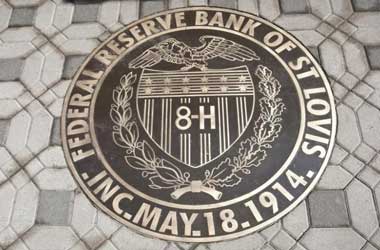 Aleksander Berentsen and Fabian Schär of the Federal Reserve Bank of St. Louis have presented a detailed article after studying the pros and cons of Bitcoins and other altcoins.
Aleksander Berentsen and Fabian Schär of the Federal Reserve Bank of St. Louis have presented a detailed article after studying the pros and cons of Bitcoins and other altcoins.
In the article, Berentsen and Schär have opined that Bitcoin is more robust than fiat currencies. The scholars have also argued that crypto currencies have the necessary characteristics to become an important asset class.
The duo have said that crypto currencies are a welcome addition to the prevailing currency ecosystem. As a counter argument to those who have forecast that Bitcoin will drop to zero, Berentsen and Schär have argued that even the value of a fiat currency can drop to zero.
The research report from Berentsen and Schär says
“Bitcoin is not the only currency that has no intrinsic value,” states the article. “State monopoly currencies, such as the U.S. dollar, the euro, and the Swiss franc, have no intrinsic value either. They are fiat currencies created by government decree. The history of state monopoly currencies is a history of wild price swings and failures. This is why decentralized crypto currencies are a welcome addition to the existing currency system.”
Berentsen and Schär believe that the consensus rules of Bitcoin may be eventually changed to allow an increase in the total supply. They have also mentioned that such a move would be opposed by the Bitcoin community.
Considering the fact that undesirable changes in fiat currency protocols happen often, leading to a destruction of the value of the fiat currency, Berentsen and Schär believes that Bitcoin protocol is certainly robust than many of the fiat currency protocols.
Apart from mentioning a few basic details about altcoins, the report also provides an outlook for Bitcoin. Berentsen and Schär visualize crypto currencies to emerge as a separate asset class, facilitating investment and diversification. The article even says that Bitcoin can assume a similar role as the yellow metal. Interestingly, the report covers applications of block chain technology in the areas of smart contracts, colored coins, and data integrity. Berentsen and Schär have particularly pointed out Ethereum as a leader in the smart contract domain.
The article has pointed out three main risks associated with crypto assets. Firstly, forking of block chain networks, leading to the creation of another altcoin is listed as a major risk for the crypto currencies. However, the article did not go into the downsides of forking. Secondly, the article considers high power consumption as a major risk. However, Berentsen and Schär do not consider proof-of-work is wasteful.
Berentsen and Schär have written
“There are those that criticize Bitcoin and assert that a centralized accounting system is more efficient because consensus can be attained without the allocation of massive amounts of computational power. From our perspective, however, the situation is not so clear-cut. Centralized payment systems are also expensive. Besides infrastructure and operating costs, one would have to calculate the explicit and implicit costs of a central bank. Salary costs should be counted among the explicit costs and the possibility of fraud in the currency monopoly among the implicit costs.”
The third major risk associated with crypto assets, according to Berentsen and Schär, is the price volatility. Berentsen and Schär argue that a predetermined supply of Bitcoin will not lead to a stable currency. The article says “If a constant supply of money meets a fluctuating aggregate demand, the result is fluctuating prices.”
In case of the US dollar, the Fed manages liquidity and ensures a limited volatility. Such a mechanism is not prevalent and possible in a decentralized currency such as Bitcoin. Therefore, price fluctuations will be higher than many government-backed fiat currencies.
It is the first time such a detailed presentation about Bitcoin has come from the Fed officials.

 United States
United States United Kingdom
United Kingdom














